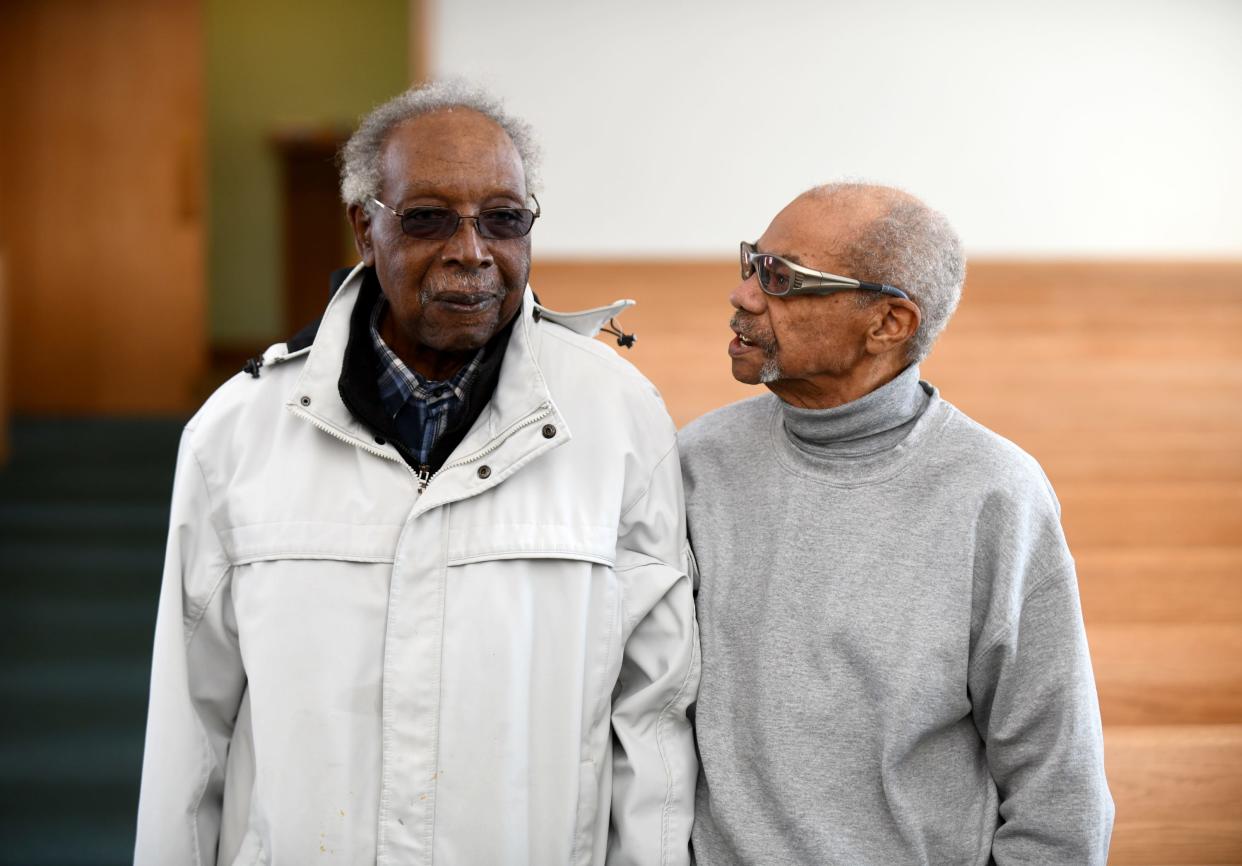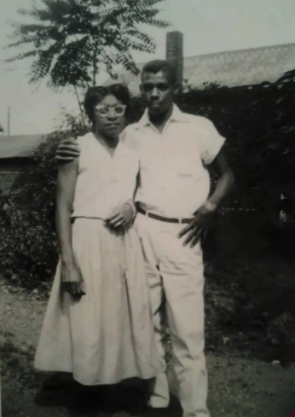Men of Steel: Breaking racial barriers at the Canton's Timken Co.

CANTON – The story of Jesse Byrd, the Rev. Willie Wilder Jr. and the late Sylvester Morgan is a classic version of the American dream.
It's about the Great Migration, which drew millions of Black Americans north in search of better jobs and less discrimination and how the push for civil rights changed the lives of millions when they were given the chance to compete on level playing field.
It the story of the American Century for cities like Canton, buoyed by a wealth of manufacturing companies that provided solid, working-class jobs and upward mobility.
More: After 120 years, Timken Co. is ingrained in Canton, Ohio
In 1969, the three men broke ground by becoming the first Black plant supervisors at the Timken Co.
"I worked for the Timken Roller Bearing Co. from Oct. 15, 1951, to Oct. 15, 1952, when I was drafted into the Army for to years," said Byrd, who retired in 1982. "After my discharge, I returned to my job as a floor sweeper. I worked my way up to first ladleman to steel pourer in my department in the Harrison steel mill."
'The government was pushing them to hire Black supervisors.'
Three positions opened in 1969 for supervisors. Morgan became the company's first Black supervisor, followed by Byrd and Wilder.
"How we came about is, the government was pushing them to hire Black supervisors," Wilder said.
Wilder, 86, of Perry Township and Byrd, 89, of Canton said while they did encounter some resistance, they also found support.
"It was the same then as it is now," Wilder said.
'We knew the job.'
Byrd recalled asking his supervisor for advice.
"Being a young Black man, I asked him what I should do if I had a problem. He said, 'That's what I'm here for,'" Byrd said.
Wilder said they weren't given any special management training.
"The only training we had was knowing how the supervisor wanted things done. We knew the job," he said.
Wilder was asked if he were surprised when the three were promoted.
"Yes and no. The only thing is, they increased the tonnage (production), which meant the laborers were making more money than we were," he said, with a laugh.
Wilder, a minister, said their promotions were an example of how a person has to embrace and be prepared for life's constant adjustments.
"Nowadays, people have what (apostle) Paul called 'itching ears;' they want soothing things," he said. "At my age, I'm still learning to make adjustments. It's been a blessing to reach retirement."
Making the move to Canton
Byrd, born in Demopolis, Alabama, in 1932, moved to Canton with his mother in 1948.
From the 1910s to the 1970s, an estimated 6 million Black southerners left to seek their fortunes in other regions.
"My brothers had left Alabama and found jobs," he said. "My brother came to Canton. My brother-in-law went to Chicago. My brother sent for my mother and me, and my brother-in-law sent for my sister, who still lives in Chicago.
"It was still hard," he said. "Even when I was in the service, down south, they didn't respect the uniform. I trained in Virginia. You were still relegated to the Black section. When I got to the Timken Co., things were different."
Though he began as a floor sweeper, Byrd worked hard and took advantage of his opportunities.
"Each position they offered, I accepted," he said.
Wilder, the eldest of 11, is the son a sharecropper. He was 10 when the family moved to Canton from Proctor, Arkansas, in 1945 after Wilder's father got a job at Timken.
"My father came in January and we came in March," he said.
Wilder said the move was a culture shock to his grandmother, who feared him playing with the white neighbor kids.
Race relations in Canton then and now
Race relations, Wilder said, haven't changed all that much from those days.
"You see it now, only in the open. Look at what happened to Ahmad Arbury and that FedEx driver," he said. "When I was working, a guy right beside me in the melt shop said, 'I don't like you, (N-word.)' I'd rather have a guy like George Wallace than somebody smiling in my face. He was honest enough to let me know."
Byrd said he still believes one supervisor whom he knew was prejudiced tried to set him up for failure after ordering him to trade places into a new department he didn't know anything about.
"I prayed over it and called the workers into the office and asked them for their help," he said. "They offered their support."
Meanwhile, the man who took Byrd's old job came to Byrd for help, even though the supervisor forbade the man from helping Byrd. But when productivity began to suffer, a higher supervisor ordered both men back to their original departments.
"I felt like it was a sink-or-swim situation," Byrd said. "But he hoped I would sink."
Wilder said the key to their success was their willingness to ask for help, and observing people who had the expertise. He advises young people to embrace the same strategy.

"Don't be so hot-headed," he said. "Don't be so quick to make a decision. Learn to listen. Hear what's being said and done. Pick up the habits of people doing the job right. Don't be afraid to try new things. You can never learn enough. Life will teach you if you want to be taught."
Wilder, who started at Timken in 1956, said he worked two jobs for 25 years to support his wife, Lois, and their seven children, adding that he even learned new skills on those part-time jobs, including how to fix cars.
Byrd said he often had to deal with workers who didn't want to go beyond the call of duty on their jobs, but he does encourage people to have boundaries.
"I didn't take work problems home, and I didn't take home problems to work," he said.
Both men credit their families for support. Byrd and his wife, Evelyn, have two daughters.
"I've been married 66 years," Wilder said. "I thank God for a good woman. When you've got a good mate, it takes a lot of the pressure off. ... I've had a good life. We've had some rough times, but we're still here."
In some ways, Wilder still uses his supervisory skills as a pastor, which he has been for 32 years. He leads the flock at the True Vine Revival Center.
"I always knew he was going to be a pastor," Byrd said laughing.
Wilder smiled.
"A minister is a title of love," he said. "You have to care about people."
Reach Charita at 330-580-8313 or charita.goshay@cantonrep.com
On Twitter: @cgoshayREP
This article originally appeared on The Repository: Canton men share their story of breaking barriers at the Timken Co.

